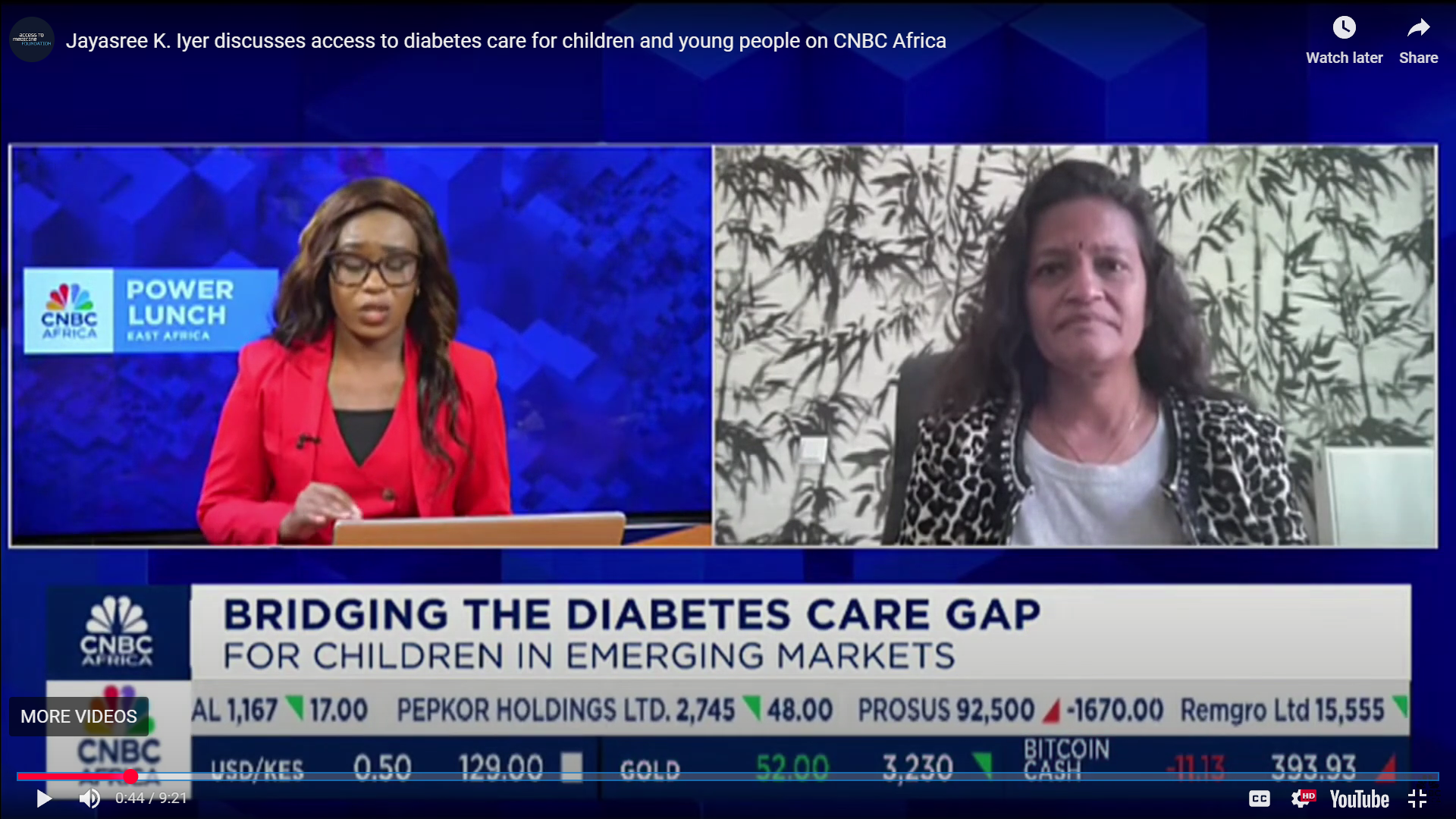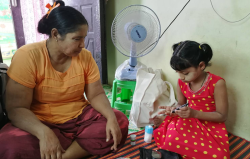Date
16 May 2025
Jayasree K. Iyer discusses access to diabetes care for children and young people on CNBC Africa
Direct links
Against the backdrop of rising global diabetes rates, the Foundation releases a new report that analyses the pharmaceutical industry’s efforts to provide access to critical type 1 diabetes (T1D) care products in underserved regions, where many children and young people (CYP) are in desperate need of access to lifesaving care. Speaking to CNBC Africa, Jayasree highlights that across Africa, an estimated 1.2 million CYP aged 0–19 live with diabetes, with around 150,000 new T1D cases diagnosed annually—a figure likely underestimated due to gaps in diagnostic services. She emphasises the urgent need for companies to strengthen strategies that expand access and provide tailored support to help CYP manage their condition effectively.
In discussing the reliance on donated insulin, Jayasree notes that all four companies contribute to at least one of the 11 initiatives analysed in this report, which provide diabetes care specifically to CYP living with T1D. However, this dependence raises concerns about long-term sustainability, as donations are not guaranteed. To address this vulnerability, a shift toward more sustainable solutions is needed. Commercial models must become more affordable, and governments should take a stronger role by forming effective partnerships to expand access—especially in resource-limited settings.
They also discuss how companies are shifting their strategies in LMICs in response to growing demand for weight-loss drugs. Jayasree notes that while these innovations have the potential to significantly improve care and quality of life, companies must not lose sight of vulnerable populations. Insulin remains inaccessible to half of those who need it—particularly children with T1D in resource-limited settings, where care is often about survival rather than proper management. She also raises concern over Novo Nordisk’s phase-out of user-friendly insulin pens in certain countries, which is forcing patients to rely on less practical alternatives like vials and syringes.
The discussion also highlights the critical role of governments in improving diabetes care. Jayasree outlines key actions: integrating diabetes into national health plans, expanding health insurance, promoting health education, and raising awareness. She cites Rwanda as a strong example, where screening, diagnosis, and management have been embedded in the primary healthcare system—including home-based assessments that bring blood glucose testing and support directly to people’s homes.
Jayasree K. Iyer discusses access to diabetes care for children and young people on CNBC Africa


